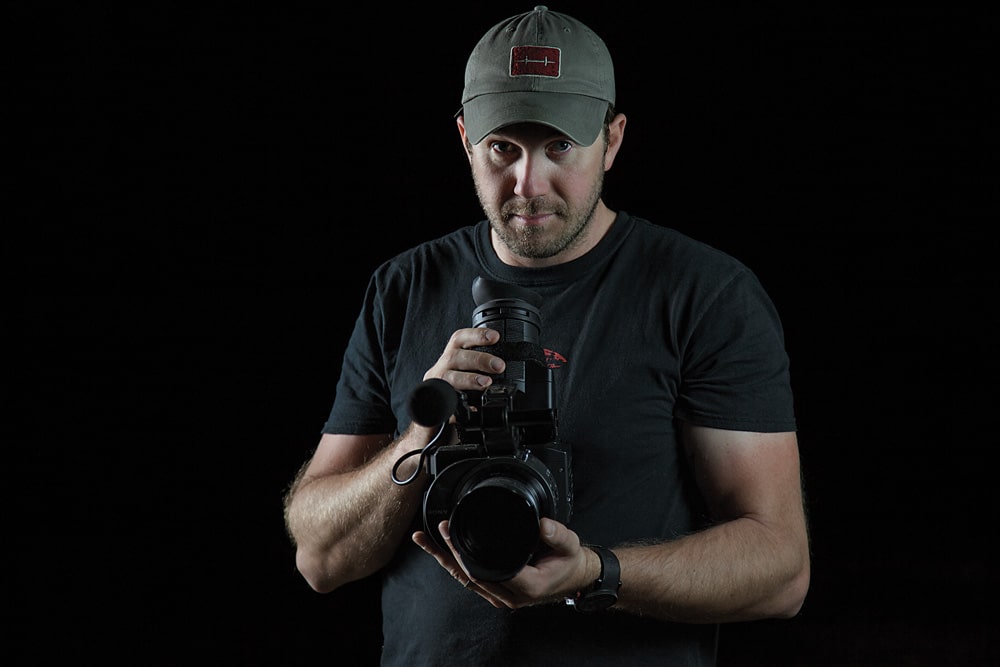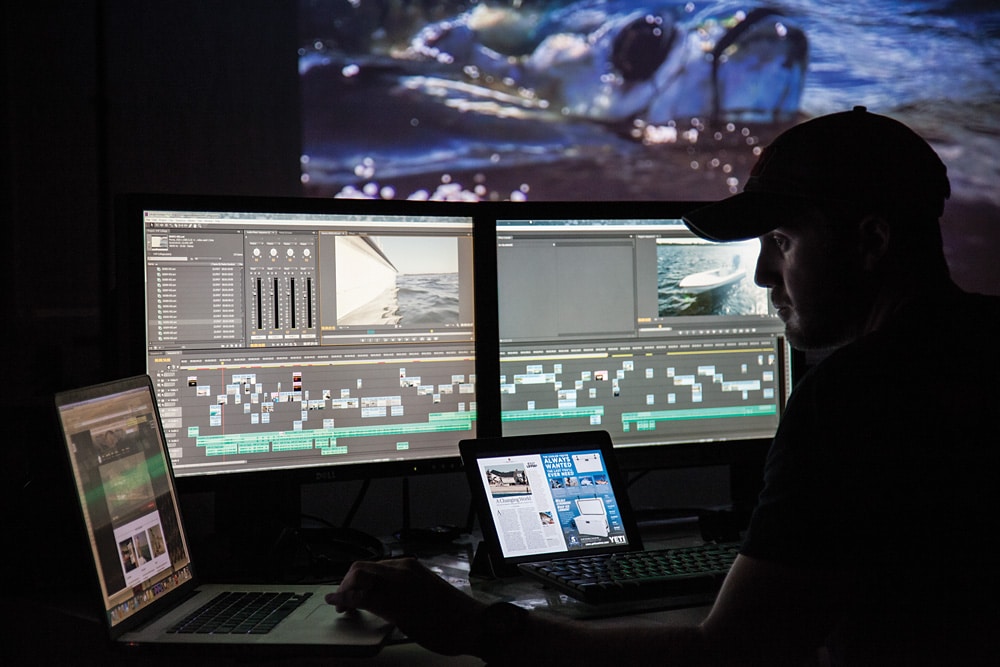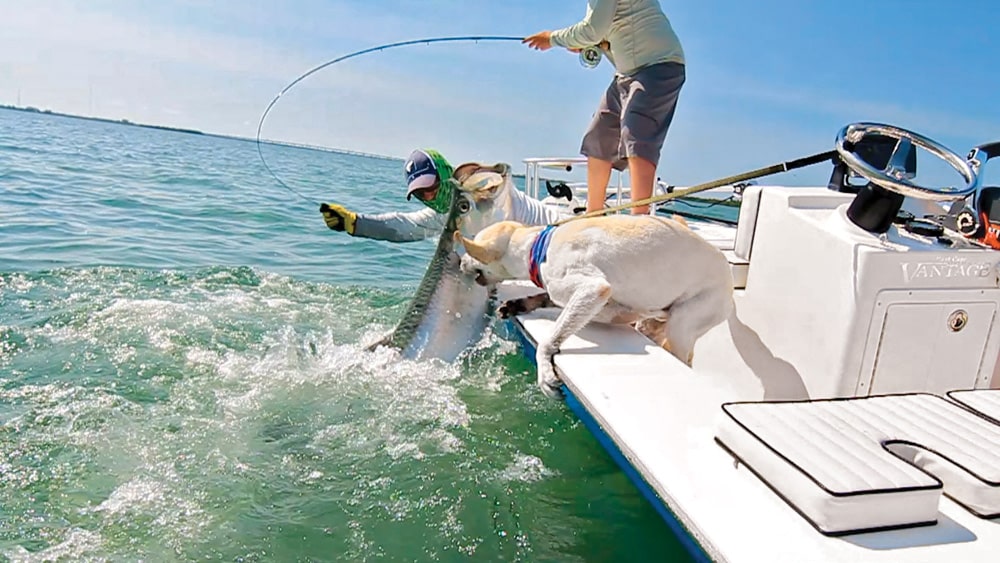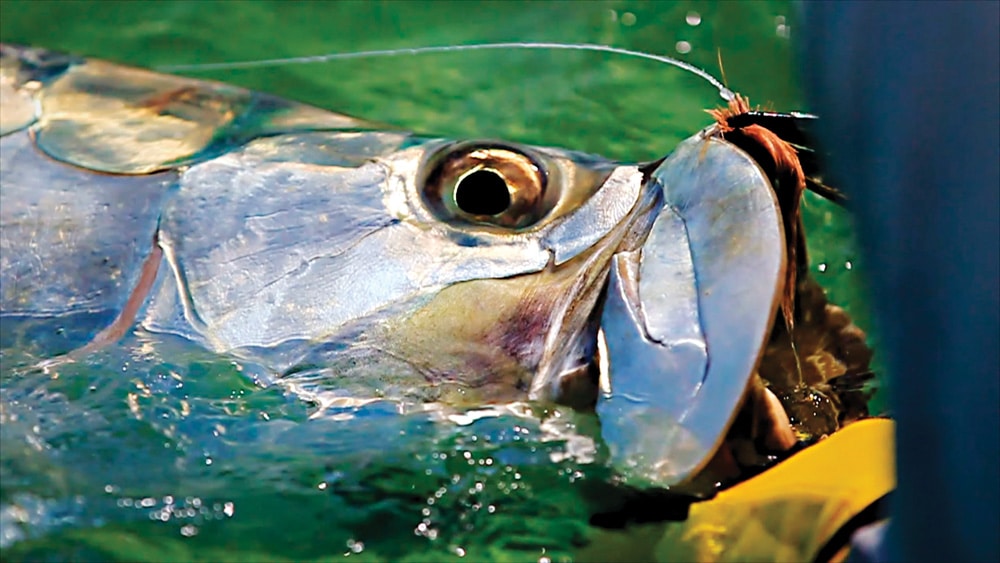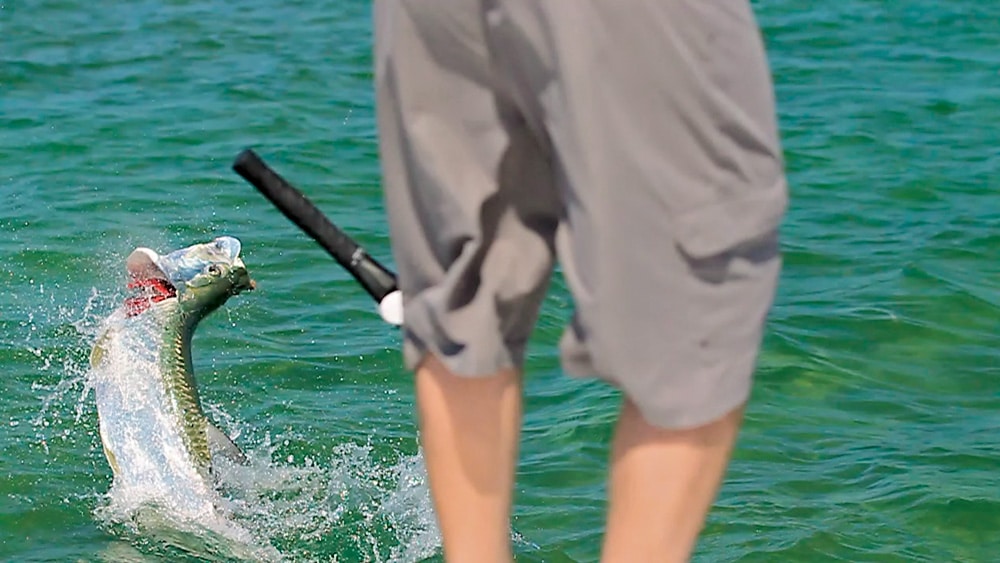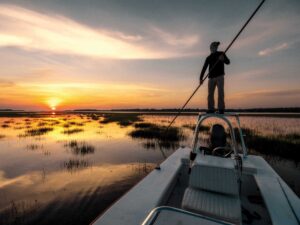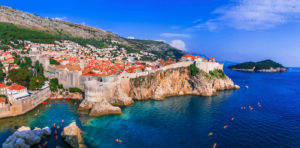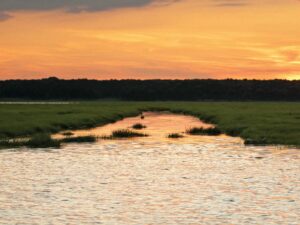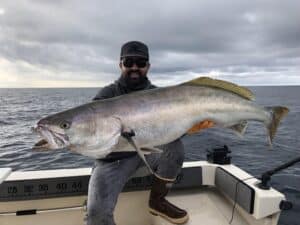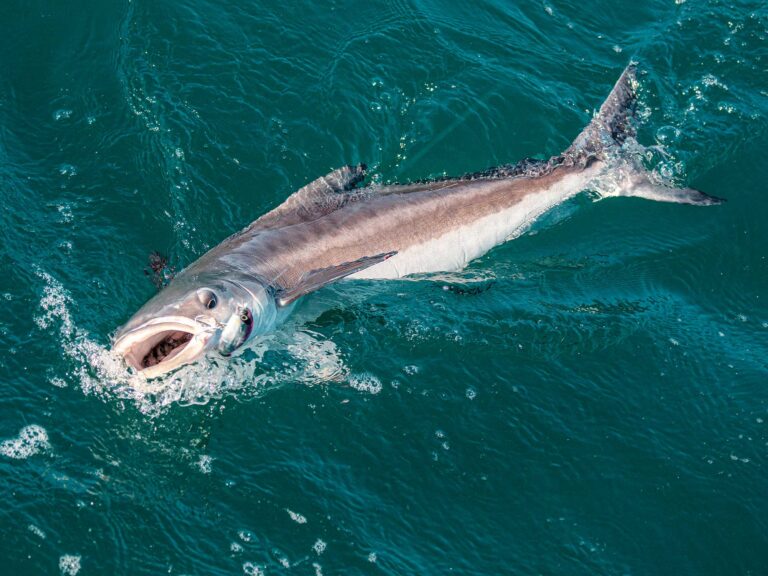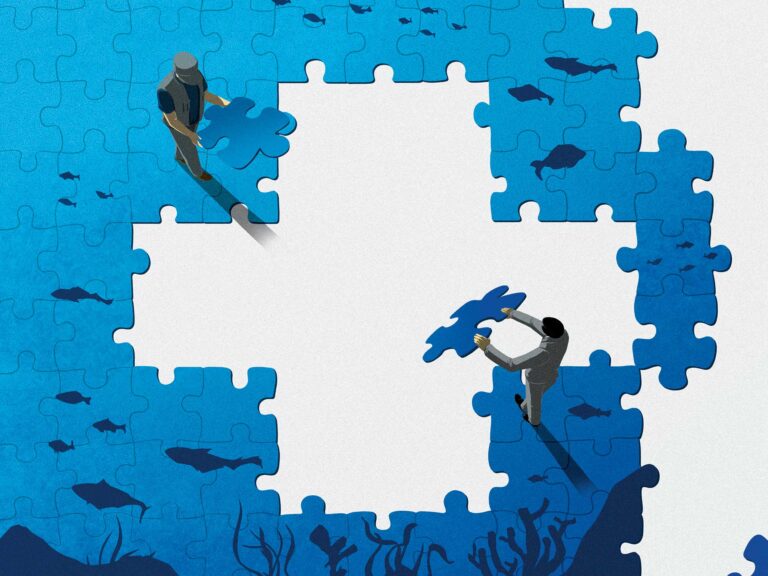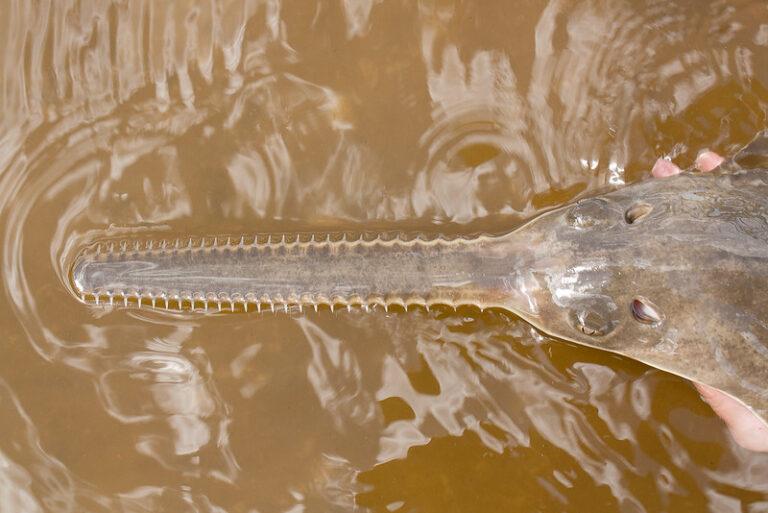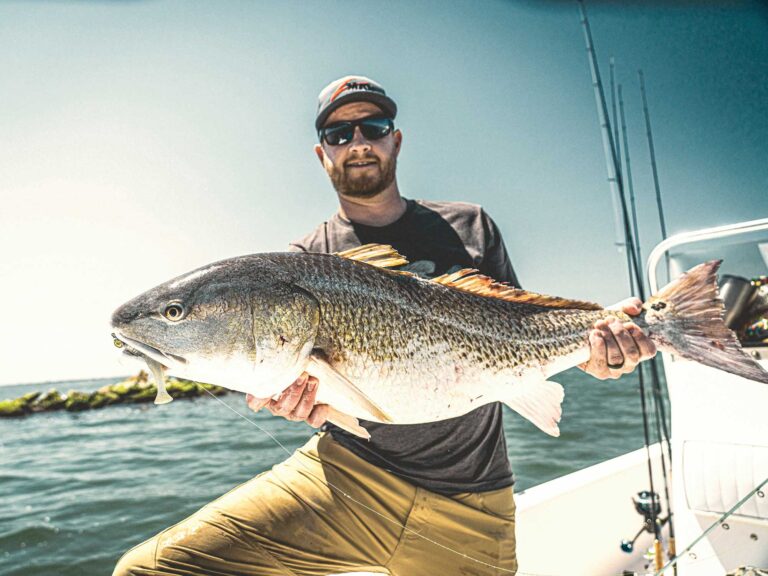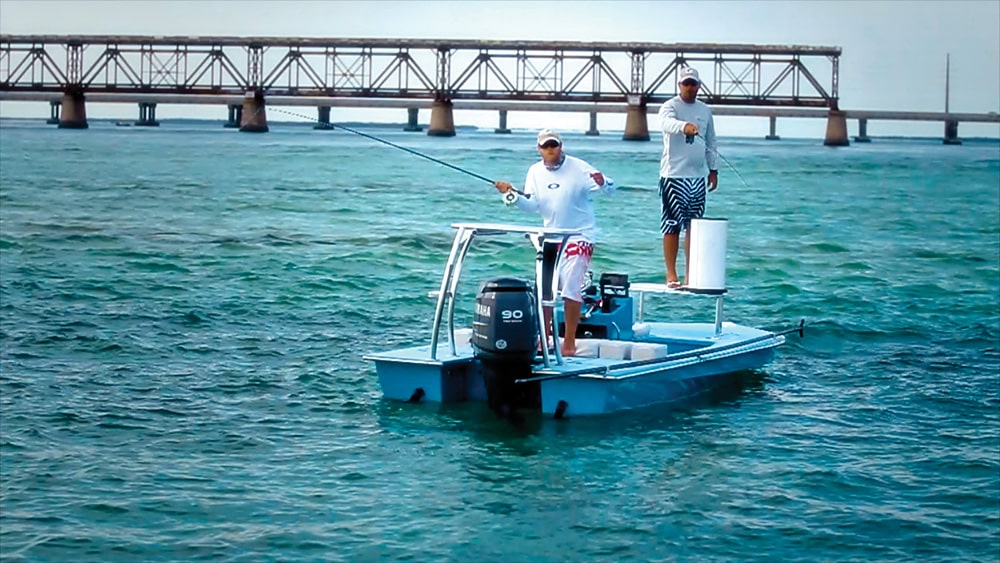
[Be sure to click through all the images in the gallery above.]
Tell us a little bit about your background with fly-fishing. Do you partake yourself or strictly shoot photos?
Morton: I used to (laughing). I have been fishing since I can remember and have been fly-fishing since I was 12, when my Uncle Matt bought me my first fly rod to chase trout in the mountains of western North Carolina. I got my first 8-weight when I was 16 and began wading in the Mosquito Lagoon, Indian River and Sebastian area of Florida. From there, I’d beg my dad to chase tarpon in Boca Grande but always ended up sticking with reds and snook. Coincidently, that was around the same time I got behind my first professional broadcast camera. I am 32 now, and over the last few years I haven’t gotten to fish but a handful of times because I try to stay behind the lens. Marc Page and Capt. Greg Dini try to make me put down the camera and pick up a rod from time to time, but usually that’s when it’s blowing 25-plus (laughing).
How many camera operators do you typically work with? Or, how many cameras do you typically have rolling at one time?
Morton: Just me most of the time. Every once in a while we will rig up a different angle off the side of the boat or something, but I already have two or three running on my shoulder, at the same time trying to focus, check exposure, monitor audio and not fall off the boat or drop the camera overboard.
Are there any particularly memorable shots or sequences that you remember watching for the first time in the editing room and thinking, “Wow! I nailed that shot!”?
Morton: Oh, yeah, but it is usually stuff that nobody gets to see. I remember some pretty amazing stuff where both Marc and I almost fell off the boat several times during a tarpon fight in the ‘Glades, and I didn’t think any of it came out until we got back. Almost the entire fight was perfect from start to finish. To this day I still haven’t gone through all of the footage from even three years ago, so there is always a surprise jump or two hiding in the hard drives.
What are some of the projects that you are most proud of and why?
Morton: Actually, my personal favorite was Heart of the Marsh. It was right after the Gulf oil spill. Capt. Greg Dini and Capt. Gregg Arnold called me and said they wanted to shoot something to show what was really happening, without input from outside media. The next day Marc Page and I were on a cheap flight to New Orleans. We shot for three days in crap weather, flew home, edited in one day, and got it done from idea to delivery all within five days total and 24 hours before the deadline.
I remember hearing some incredible Web stats (page views and such) from one of your projects. Can you refresh my memory on what those numbers were and for what film?
Morton: I don’t remember exactly off the top of my head, but a Web developer friend of mine said Riding High had over 2 million clicks within a couple months of putting up the teaser that I edited in a night, which really surprised all of us.
Are you working on anything big right now? If so, can you give us a Cliff’s Note version of what it is exactly?
Morton: Last year my wife and I had our first son, Zane, so I really didn’t get to focus near as much as I wanted to and finish Riding High, so come hell or high water, I’m going to finish that this fall. I am also slated to do two webisode projects that are completely different, but both should really turn out well because of all the support and interest we have gotten already.
Was there any film or TV show that inspired you to take the route you’ve taken? Any other fly-fishing filmmakers whose work you particularly enjoy?
Morton: I grew up in the ’80s watching Flip [Pallot] on The American Sportsman and The Walker’s Cay Chronicles, which were shot on film, so it wasn’t as easy to produce as it is today. The past few years it has been the guys from Felt Soul and Confluence; the World Angling boys, Dave Tepper and Will Benson; the Motiv crew, David Mangum and others. The Fly Fishing Film Tour and those guys have really changed the way people see fly-fishing and have introduced so many people around the world to an experience they never knew about.
Why do you think there has been a sudden influx of progressive-style fly-fishing films?
Morton: People want good cinematography, storytelling, and real people and situations in their entertainment, not some B-rated TV host showing them in one hand which bait/reel/boat to use that’s guaranteed to catch them a “lunker” as the same bait/reel/boat company is shoving money into his other hand.
How do you feel this “influx of creativity” benefits the fly-fishing community and industry?
Morton: It’s exciting to watch. Companies in the industry are starting to get the picture that people will support their product if they are represented in a good light through a film without it being an infomercial. The A River Runs Through It push that fueled the mainstream growth of fly-fishing is mainly over, so we have to create media that captivate, entertain and educate kids to get into the sport. When I show my friends who don’t fly-fish newer short films from the Web, they really like [the sport] and want to go experience it for themselves.
What do you hope viewers take away from your films?
Morton: Mainly that we need to preserve all of these wild areas, areas that we all love so much. Stop urban sprawl, development and commercial projects that can endanger our pastime — like the dredging in Key West. We also need better content in our industry. Most of the TV shows are cookie-cutter, and if it is a lion hunt from Africa or a trout show in the mountains, it is the same show week after week, and it is all our fault as a community. The creators and producers of said shows do not fish or hunt. The guys that are really creative are people who make films for the Fly Fishing Film Tour and the like, the starving-artist Trout Bum guys. But they are severely underfunded and still turn out killer stuff.
